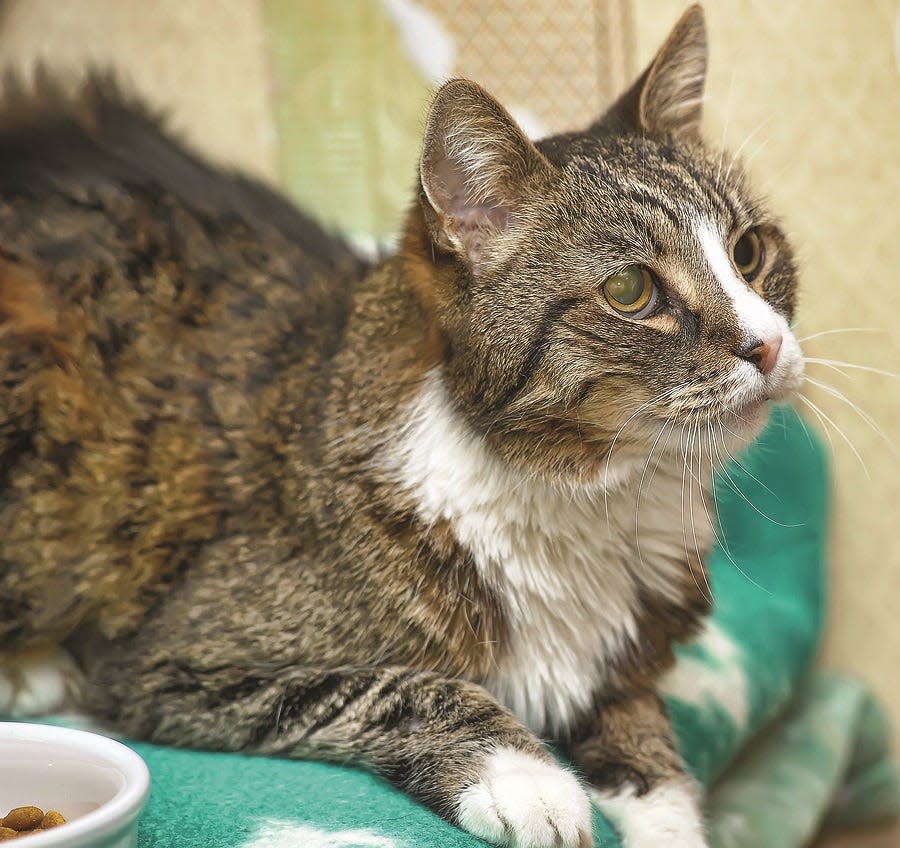The secrets to feline longevity are smart observations and regular veterinary care

Cats are among the world’s most popular pets, and one of the reasons, we like to think, is because of their long lifespan. Cats can easily live 10 to 14 years, and many live much longer — well into their teens and sometimes even into their 20s.
But one of the things lots of people don’t like about cat care is taking them to the vet. Cats tend to complain about it — loudly — and it’s easy to think, “She looks fine. There’s no reason to stress her by taking her to the vet.”
When you skip those annual exams, though, especially as your cat starts to reach the senior years, you’re missing out on the opportunity to catch lurking health problems in the early stages and to ensure that your cat has a healthy, comfortable old age.
“I absolutely hate seeing a client with dogs that I see regularly on my schedule with a 15-year-old cat that I didn’t know existed,” says Kathryn Primm, DVM, FFCP, owner of Applebrook Animal Hospital in Ooltewah, Tennessee. “By then, the cat will have advanced kidney disease, untreated hyperthyroidism and will have been suffering from arthritis for seven years.”
Regular veterinary exams throughout life — for senior cats, twice a year is best — allow your veterinarian to keep tabs on your cat’s health through blood and urine tests and get their hands on Duchess to check for arthritis pain, excess pounds or unusual weight loss, and other signs of disease. It’s also their chance to talk to you about changes in your cat’s activity level or behavior. You might chalk them up to old age, but often those changes signal pain that can be managed with medication or changes in the home environment.
“The new arthritis medication called Solensia can really help an old kitty with mobility, and this helps increase owner-pet interactions,” says Diane Walker, DVM, FFCP, who practices at Blueberry Creek Veterinary Hospital in Perth, Ontario, Canada. “I have used it on my orange kitty, who is 16, and it changed his whole enjoyment of life. He is walking up to the bedroom now and waking us up for his breakfast at 5 a.m., just like the old days.”
Exercise is important, too. Your senior cat might not play like a kitten anymore, but it’s important for her to stay active. You don’t have to spend a lot of money on toys to come up with ways to keep your cat busy. Cats can chase, hide, climb and explore with an endless variety of toys, many of them recycled household objects. Aim for low-impact play rather than the flying leaps of youth. A few minutes a couple of times a day will help your senior cat stay fit.
Make rest easier. Your cat may have once been a high-jump star, but age may limit her ability to get on the sofa, bed or cat tree. Offer plenty of low-level spaces for her to enjoy a good nap or place pet ramps for ease of access to furniture. A heated bed can soothe achy joints.
Consider getting a litter box with low sides so it isn’t difficult to enter. If you have a two-story home, put a litter box on each floor to reduce the need to use stairs.
If you’re anxious about taking your cat to the veterinarian because she hates riding in the car and going to the clinic, talk to your vet about ways to reduce the stress. A vet who has Fear Free, Low Stress Handling or Cat Friendly Practice certifications can help make the visit easier on you and your cat. You can find more tips here: fearfreehappyhomes.com/your-catsvet-visit-begins-at-home.
The bottom line: Look at your aging cat in a new way, and do what it takes to accommodate the changes brought on by aging, with the help of your veterinarian.
Do you have a pet question? Send it to askpetconnection@gmail.com or visit Facebook.com/DrMartyBecker. Pet Connection is produced by veterinarian Dr. Marty Becker, journalist Kim Campbell Thornton, and dog trainer/behavior consultant Mikkel Becker.
This article originally appeared on South Bend Tribune: Pet Connection: A secret to feline longevity is regular vet care
